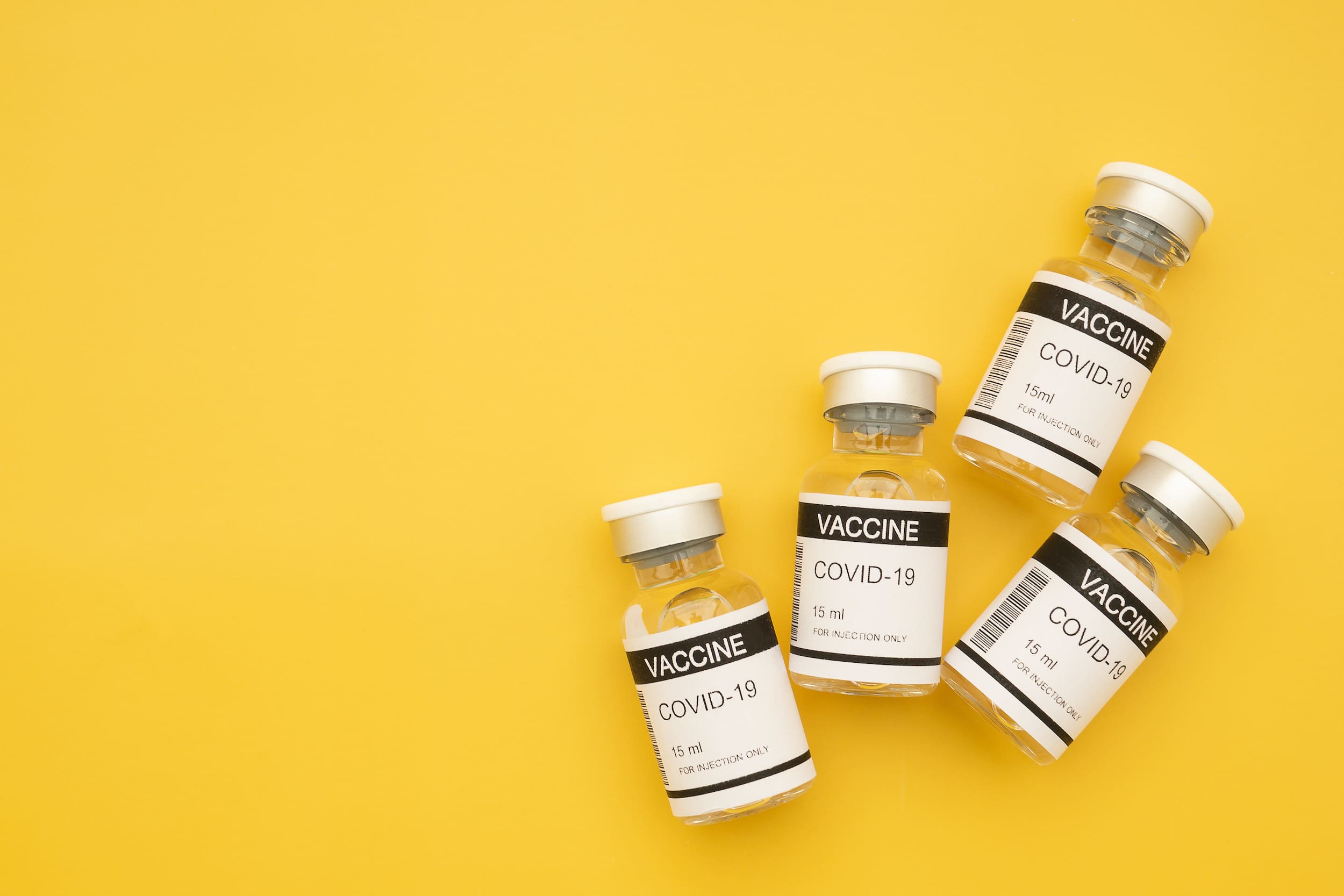Australia currently has two approved vaccines for use, however, there has been a recent change to which vaccine most people under 50 will receive.
Most people aged below 50 were due to receive the AstraZeneca vaccine. However, there is a likely link between the AstraZeneca vaccine and a condition involving thrombosis (blood clotting) with thrombocytopenia (low blood platelet counts). This is an extremely rare condition which is an immune reaction to platelets, causing both a drop in numbers and increased stickiness which produces clots. The clots have been reported mostly in the veins of the abdomen and from the brain (cerebral venous sinus thrombosis).
The only known risk factors are age (the younger you are the higher the risk) and gender (more commonly in women than men). People with a history of deep venous thrombosis are not at increased risk. Some patients are asking whether they should take aspirin as a preventive measure and most specialists in the area say no because paradoxically there may also be an increased risk of haemorrhage with the condition (known as Vaccine Induced Thrombotic Thrombocytopaenia (VITT) or Thrombotic Thrombocytopaenia Syndrome (TTS). Having said that, there is no indication that people already on aspirin should change their medications. This is an evolving situation and the above applies at the time of writing.
The Australian Government received advice and recommendations from the expert vaccine advisory body, the Australian Technical Advisory Group on Immunisation (ATAGI) about the AstraZeneca vaccine, who concluded that the balance of risk from VITT versus the benefit from vaccine protection from severe and fatal COVID-19 changed significantly at the age of 50. That is why Comirnaty (Pfizer) is now the preferred COVID-19 vaccine for adults under 50 years of age.
A National Cabinet decision on April 22 reinforced this in terms of the rollout. Now people aged over 50 are only eligible for the Astra Zeneca vaccine and pretty much all Pfizer vaccines will be preserved for under 50s. The Astra rollout for the over 50s is now being escalated in partnership between high throughput state run clinics and general practice.
Adults under 50 years of age may still choose to receive the AstraZeneca vaccine if they have weighed up the benefits and the risks.
AstraZeneca vaccine: Potential benefit versus risk
Although recent changes to the COVID-19 vaccine rollout include a preference for using the Pfizer (Comirnaty) vaccine in adults aged under 50 years, the Australian Technical Advisory Group on Immunisation (ATAGI) recommends that the AstraZeneca vaccine ‘can be used in adults aged under 50 years where the benefits are likely to outweigh the risks for that individual, and the person has made an informed decision based on an understanding of the risks and benefits’.
The ATAGI also recommends people who have had the first dose of the AstraZeneca vaccine without any serious adverse effects can be given the second dose, including adults under 50 years.
What is the risk of contracting a blood clot?
Extremely low, according to blood clot expert Dr. Alex Spyropoulos, a professor at the Feinstein Institutes for Medical Research in New York, who recently told CNN:-
“You have as much risk of getting struck by lightning as you have of getting one of these rare blood clots”.
The experience in the UK is that approximately one in every 250,000 people vaccinated with AstraZeneca is diagnosed with the rare blood clots. In Europe the figure is more like 1:100,000 doses. That is an average across all ages. The age specific risk hasn’t been calculated at the time of writing but is likely for the under 50s to be something like 1:70,000 doses if the statistics from some European countries (Scandinavian) are to be believed, and are really small for the over 50s, perhaps as few as one per million doses. There has also been a small number of TTS reports following Pfizer and Moderna vaccines but it’s far rarer, and the cause and effect has not been determined.
At the time of writing, there have been up to six cases of VIITT in Australia after receiving the AstraZeneca vaccine and now with the restrictions, it is expected there will be very few, if any others.
In Australia, all adults are recommended to be vaccinated against COVID-19. People over 50 often ask whether they should wait to get the Pfizer vaccine. Obviously, they are free to do so but there is no guarantee they’ll be able to do so in 2021. Astra will give people good protection against severe disease and it is likely we will all need a booster against new COVID-19 variants in late 2021/early 2022.
We are all at risk of a serious outbreak from hotel quarantine and really need to achieve very high levels of coverage in the order of 90% to feel secure.
Further information
For the latest information or if you’re worried about whether you or a family member should get the vaccine, please talk to your doctor.
The Department of Health has published guidance on weighing the potential benefits against the risk of harm from the AstraZeneca vaccine to help patients make informed decisions, along with the AstraZeneca vaccine and the COVID-19 vaccination program – Patient information fact sheet.

